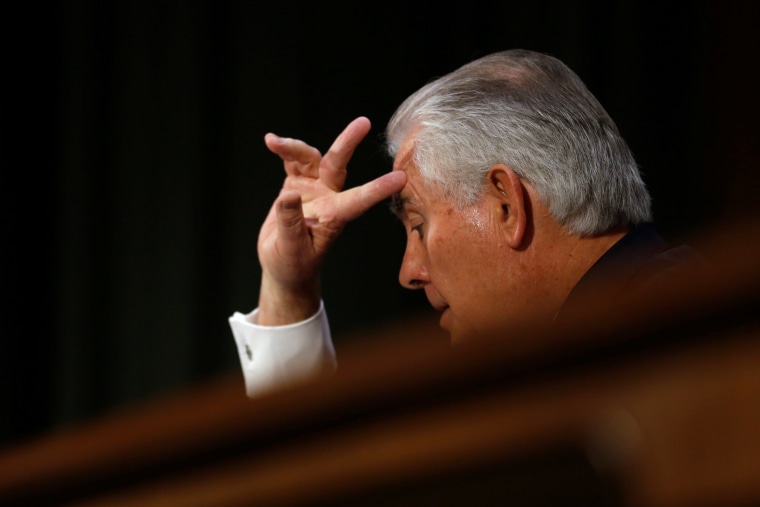When Donald Trump presented his new vision for U.S. policy in Afghanistan, the president frequently used the word "win." For example, Trump declared when we dispatch American servicemen and women abroad, "we will always win." He added, "I'm a problem solver and, in the end, we will win.... Our troops will fight to win. We will fight to win."
Subtle, this wasn't.
As the Washington Post reported, however, it didn't take long before a leading voice from the president's cabinet stepped all over that message.
President Trump assured us Monday night -- repeatedly -- that the United States will win the war in Afghanistan. But his secretary of state would apparently like to set the bar considerably lower than that.In a classic case of Trump's big talk running into stubborn realities -- almost immediately -- Secretary of State Rex Tillerson on Tuesday afternoon played down the idea that the U.S. military would walk away from Afghanistan with a victory.He addressed the Taliban directly: "You will not win a battlefield victory. We may not win one, but neither will you."
At a certain level, this position is understandable. Many foreign policy experts -- here and around the world -- believe it's simply not possible to prevail in Afghanistan, at least not militarily. Though Tillerson didn't say so explicitly, his comments suggest he expects to see some kind of stalemate in Afghanistan, which would presumably lay the groundwork for diplomacy with the Taliban.
But that doesn't make the Secretary of State's comments any less problematic.
With thousands of American troops already serving in Afghanistan, and thousands more reportedly set to be deployed, it's jarring to hear the nation's chief diplomat declare publicly that the United States "may not win" a victory on the battlefield.
If we already have reason to believe the war may not be successful, why are we fighting it? How do Trump and his team justify putting these Americans' lives on the line if there's skepticism about the mission's outcome?
There's also, of course, the ongoing problem within the Trump administration: it's difficult to count all of the contradictions between Tillerson's comments and those of his Trump World colleagues.
This does not inspire confidence.
